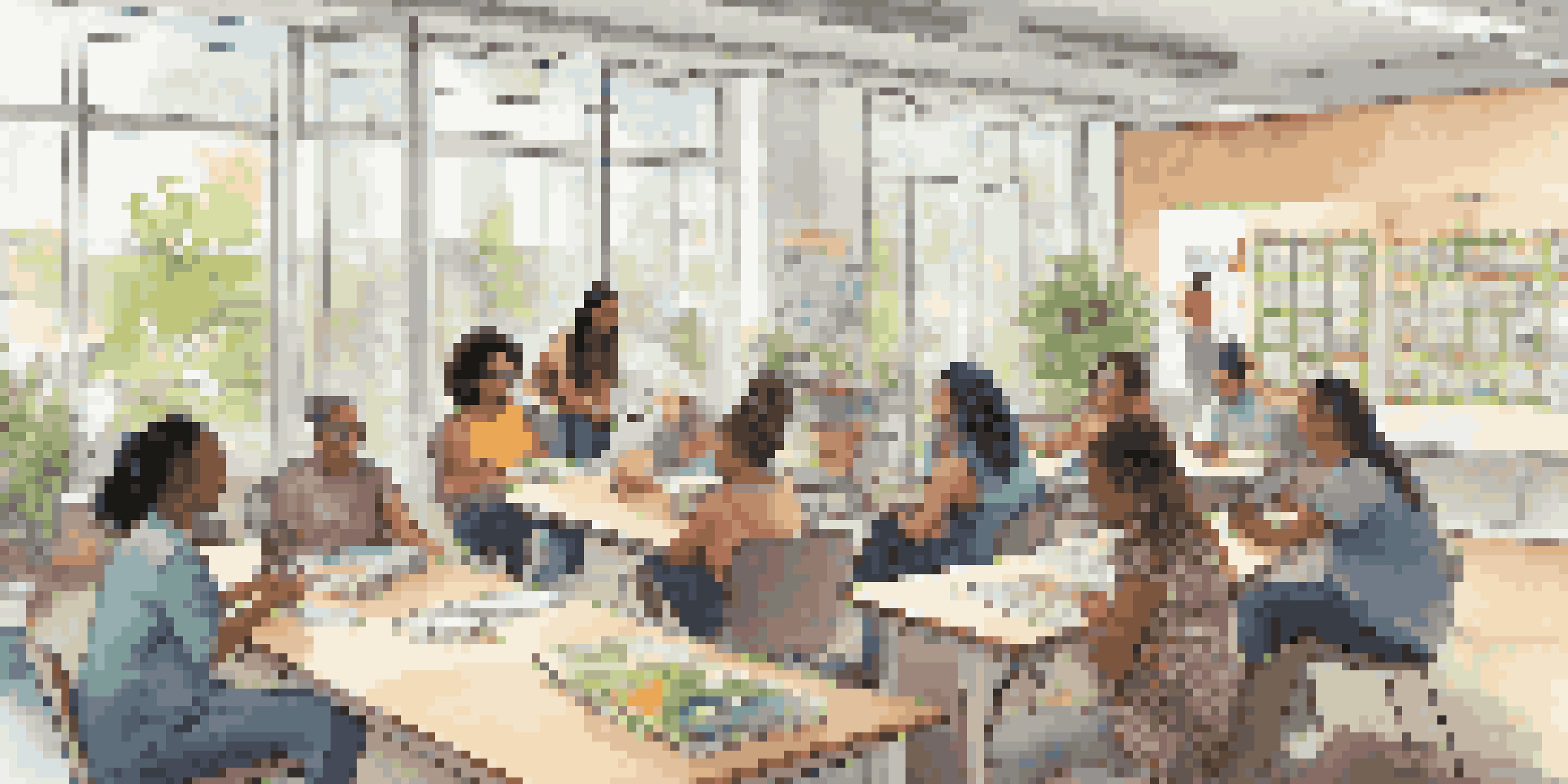Utilizing Student-Centered Learning in Adult Education

Understanding Student-Centered Learning in Adult Education
Student-centered learning shifts the focus from the teacher to the learner, emphasizing the unique needs and experiences of adult students. This approach recognizes that adults often come with a wealth of knowledge and life experiences, which can enrich the learning environment. By valuing these attributes, educators can foster a more engaging and relevant educational experience that resonates with adult learners.
The Importance of Personalization in Learning
Personalization is key in adult education, as it allows learners to connect course content to their personal and professional goals. By tailoring learning experiences to individual interests and backgrounds, educators can boost motivation and retention. For example, incorporating real-world scenarios that align with students' careers can make lessons more impactful and relatable.
Focus on Learner's Needs
Student-centered learning prioritizes the unique experiences and knowledge of adult learners to create a more engaging educational environment.
Facilitating Collaborative Learning Experiences
Collaboration among adult learners is essential for building a supportive learning community. Group activities and discussions not only enhance understanding but also encourage the sharing of diverse perspectives. When learners engage with one another, they often discover new insights that enrich their educational journey and foster deeper connections.
Incorporating Technology to Enhance Learning
Technology plays a significant role in student-centered learning, providing tools that cater to various learning styles. Online platforms, interactive tools, and multimedia resources can enhance engagement and accessibility. For instance, utilizing discussion forums or virtual classrooms allows adult learners to connect at their convenience, making education more flexible and accommodating.
Importance of Personalization
Tailoring learning experiences to individual goals enhances motivation and retention in adult education.
Encouraging Self-Directed Learning
Self-directed learning empowers adult students to take control of their educational journey. This approach encourages learners to set their own goals, seek resources, and evaluate their progress. By fostering a sense of autonomy, educators can help students develop critical skills that are beneficial not only in the classroom but also in their professional lives.
Assessing Learning Through Authentic Assessments
Authentic assessments are a vital component of student-centered learning, as they focus on real-world applications rather than rote memorization. By using projects, portfolios, or presentations, educators can evaluate learners based on their ability to apply knowledge in practical settings. This method not only measures understanding but also encourages critical thinking and problem-solving skills.
Fostering Collaboration
Encouraging collaboration among learners builds a supportive community that enriches the educational experience through diverse perspectives.
Creating a Supportive Learning Environment
A supportive learning environment is crucial for adult education, as it fosters trust and encourages risk-taking. Educators can cultivate this atmosphere by being approachable, providing constructive feedback, and respecting diverse perspectives. When learners feel safe and valued, they are more likely to engage fully and participate actively in their educational experience.
The Future of Student-Centered Learning in Adult Education
As adult education evolves, student-centered learning will continue to play a pivotal role in shaping effective teaching practices. Emphasizing personalization, collaboration, and technology will empower educators to meet the diverse needs of adult learners. By adapting to these changes, we can create enriching educational experiences that prepare students for success in an ever-changing world.